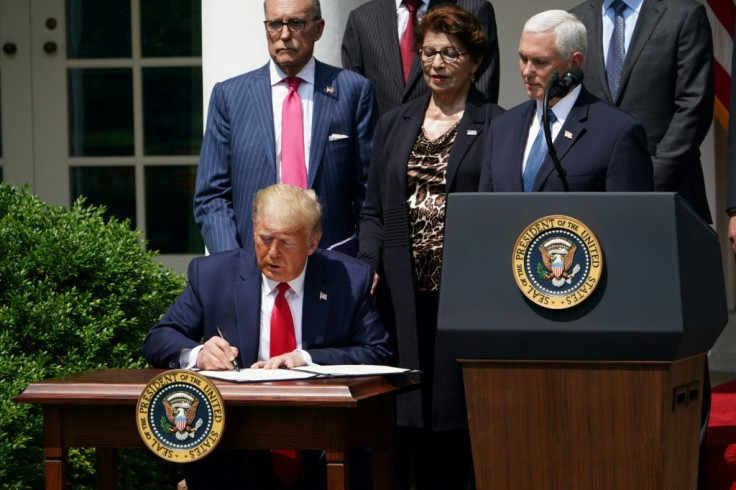When Will You Receive A Second Stimulus Check? Trump, Democrats And Republicans May Scurry To Get Money To Americans

While Democrats and Republicans appear far apart on the specifics of a new stimulus deal, both sides have expressed a strong interest in passing a new package in the coming weeks as the coronavirus pandemic has slowed the economy.
In late July, lawmakers will begin negotiations on another deal after passing the CARES Act in late March. Should President Trump sign a new financial aid package at the beginning of August, the second wave of checks could possibly be received by the end of August. The IRS already has direct deposit information for many Americans and it would take roughly seven weeks or less to send out the majority of the payments.
Despite optimism that a new deal will be reached, major political players in Washington are divided on the stimulus checks. Sen. Mitch McConnell, R-Ky., suggested last week that the next round of checks could be limited to Americans making $40,000 or less a year.
On Thursday, Treasury Secretary Steven Mnuchin said on CNBC that any extension of enhanced unemployment insurance would cap benefits at “no more than 100%” of what the recipient made before becoming unemployed.
Trump has called for a second round of checks, claiming he supports “larger numbers” than the Democrats.
At a press conference Thursday, Speaker of the House Nancy Pelosi rejected Trump administration’s calls to limit the next coronavirus relief package to $1 trillion.
"A trillion dollars is O.K. — that’s an interesting starting point. But that doesn’t come anywhere near," Pelosi said. Pelosi has suggested that at least a $2 trillion package may be needed.
In May, the Democrats passed the $3 trillion Heroes Act legislation, which extends boosted unemployment benefits, raises the pay of nonessential workers, and sends out another round of stimulus checks. Trump and McConnell have called the legislation “dead on arrival,” but the stimulus check provision of the bill could be included in the next financial aid package.
Under the Heroes Act, individuals making up to $75,000 would receive a direct payment of $1,200, while those making up to $99,000 would receive a smaller amount. Married couples making less than $150,000 in joint income would receive a payment of $2,400. Families would receive an additional $1,200 each for up to three dependents, with one household able to receive a total of $6,000.
Many Americans could be in need of another stimulus check, as states such as Arizona and California close down or limit the reopening of businesses such as restaurants and bars. Major companies, such as Hilton and Hyatt hotels, have announced thousands of job cuts amid the pandemic, while several airlines are also looking at slashing jobs and furloughing workers.
The United States currently has the most COVID-19 cases in the world. As of Saturday morning, there are roughly 3.19 million cases and a death toll of over 134,000, according to Johns Hopkins University.
© Copyright IBTimes 2025. All rights reserved.





















